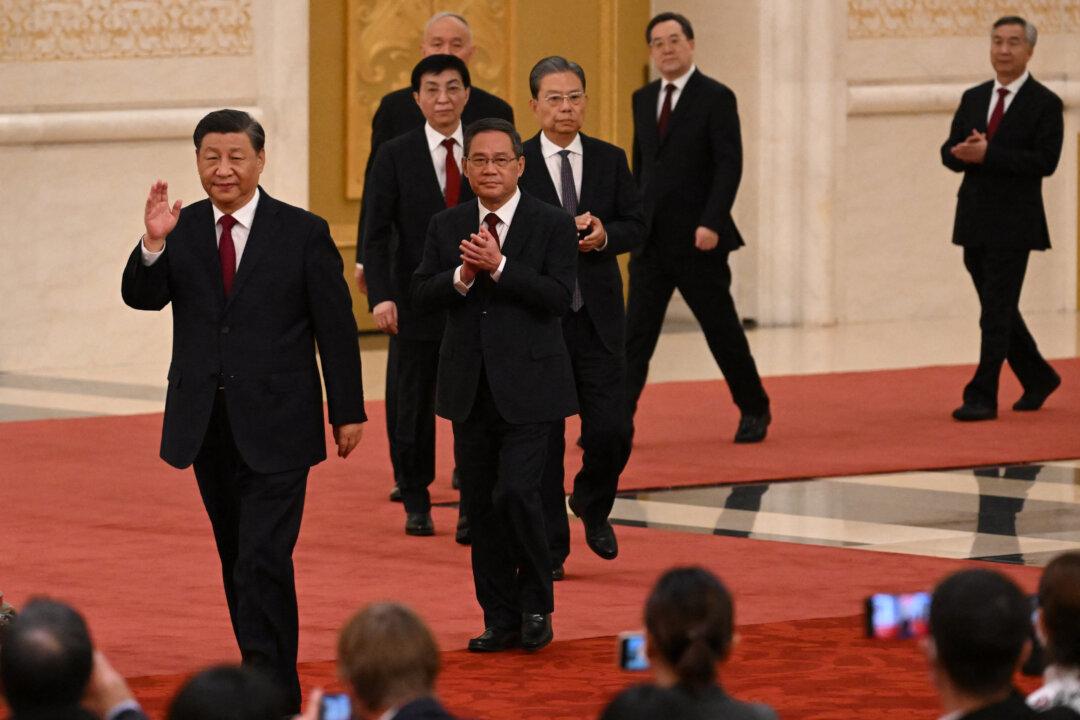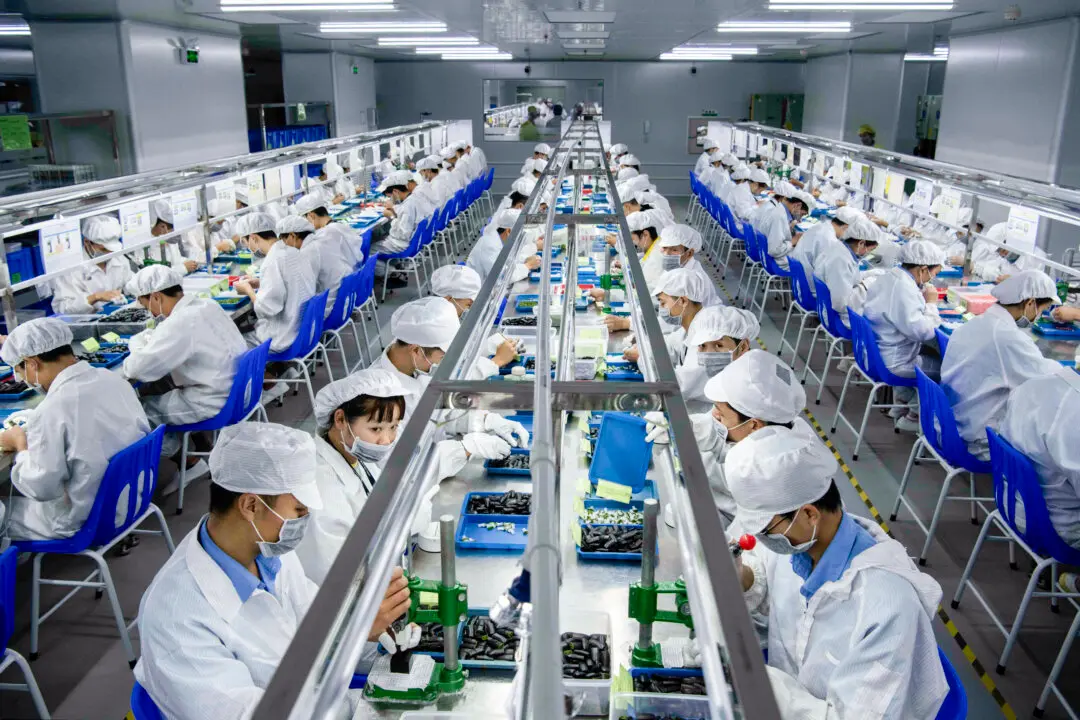Led by Xi Jinping, the seven men strode on the red carpet at the Great Hall of the People in Beijing on Oct. 23, revealing the new generation of China’s ruling elites.
These powerful officials are members of the Politburo Standing Committee, the Chinese Communist Party’s (CCP’s) top decision-making body. Current leader Xi heads the committee again after closed-door meetings at which roughly 370 hand-picked Party representatives rubber-stamped the committee’s members.




